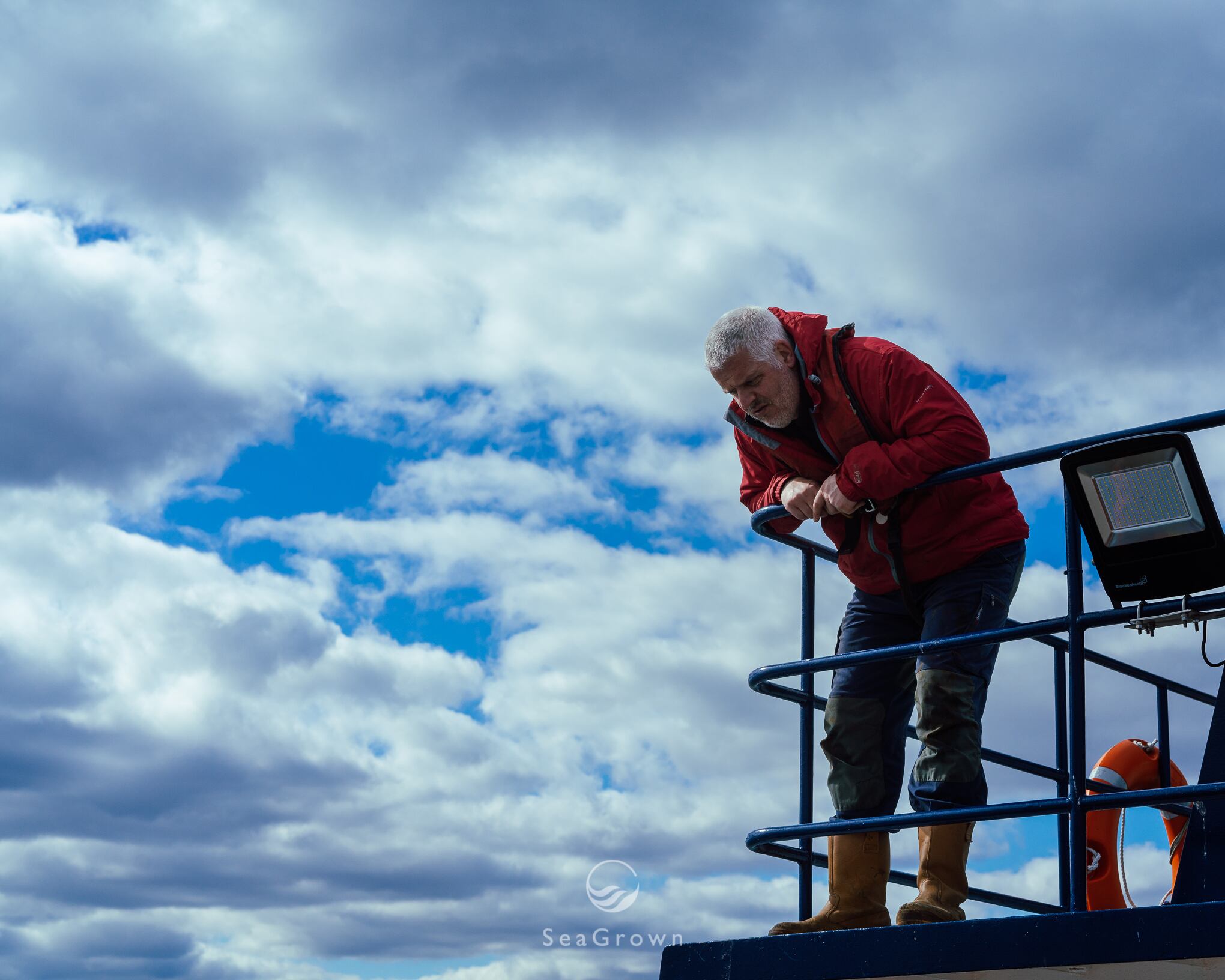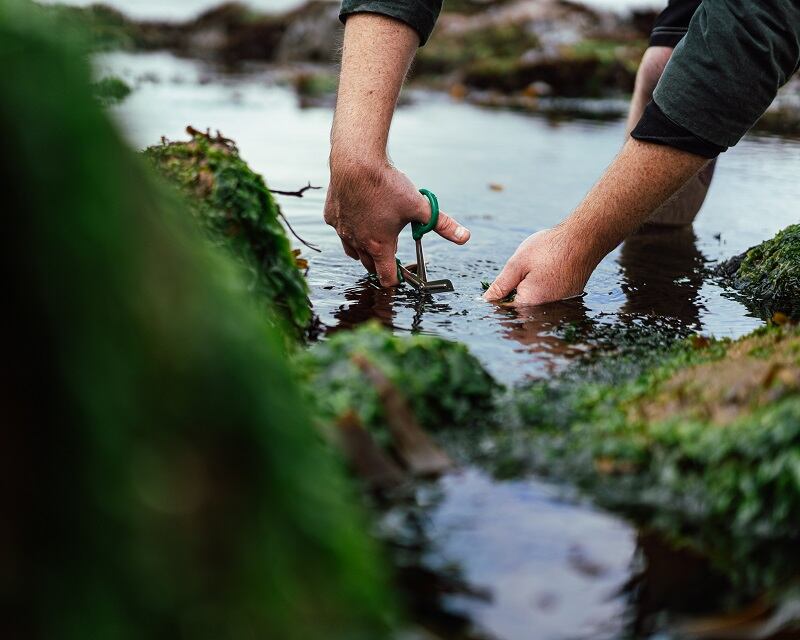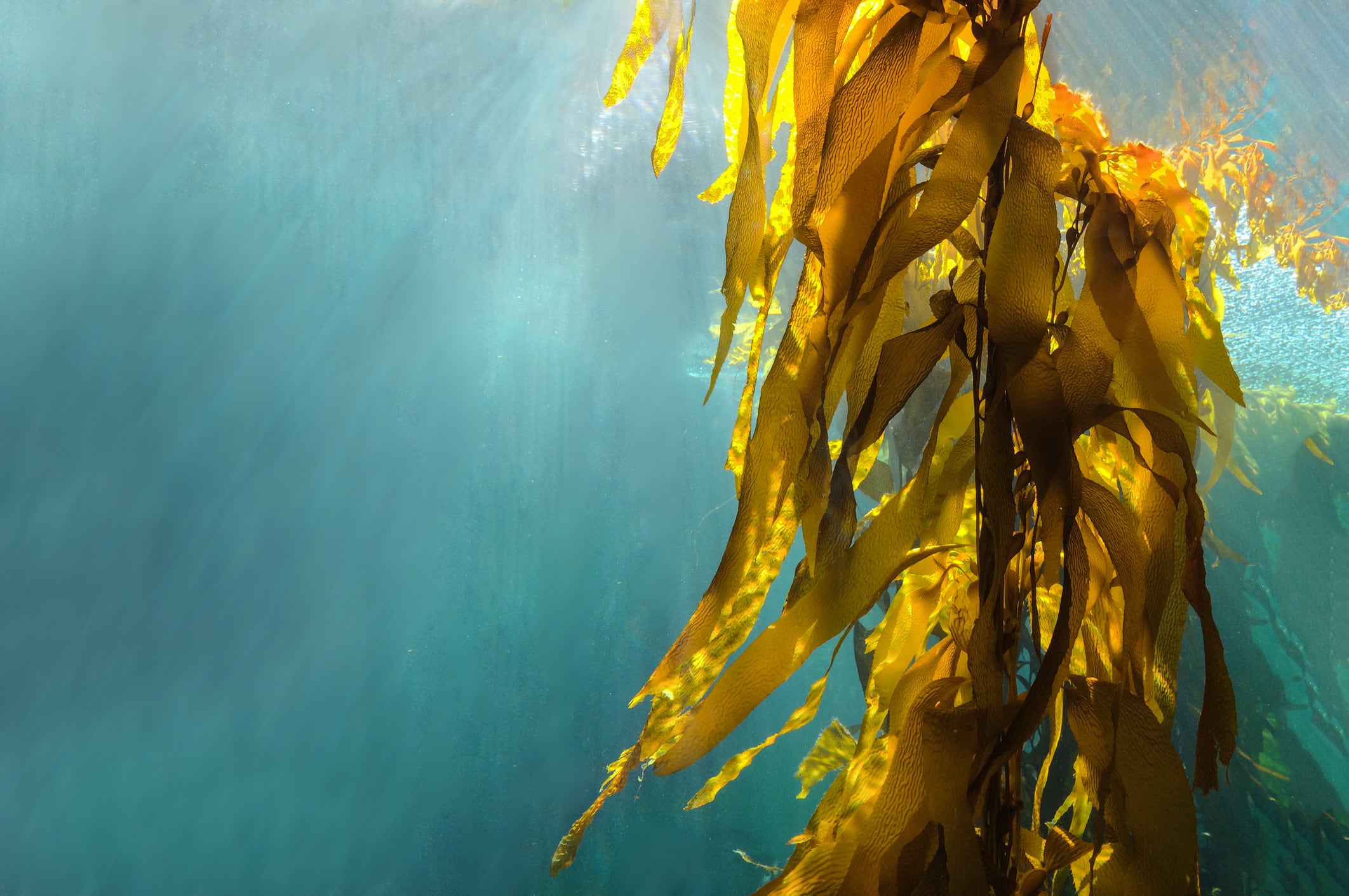As the owner of a company aiming to establish a seaweed farm in the cold, open waters of the North Sea, Wave Crookes is very aware of his particularly ironic first name. "It's incredibly appropriate," jokes the affable Yorkshireman. “I'm an ex-fisherman, an ex-deep-sea diver, an ex-naval officer. I've worked at sea all my life.”
Crookes founded Scarborough-based SeaGrown with his partner Laura Robinson, a marine scientist, in 2018. The pair had met, obviously, on board a polar research ship bound for the Antarctic. He was one of the ship's officers. They decided to embark on a business that would pool their respective expertise.
Fast-forward a couple of years and the company -- besides feeling the effects of the coronavirus pandemic, which has kyboshed much of life in the popular seaside resort of Scarborough -- is midway through installing the infrastructure on a 25-hectare seaweed farm located four miles offshore.
The plan is to become “the only people in the UK who are farming seaweed offshore as opposed to at a small scale in sea locks and inlets”, Crookes explains.
The idea is that the seaweed will begin life in a 'hatchery' on a ship docked on Scarborough harbour. After the seeds have hatched and grown to the right size they will be transported to the offshore site where they will continue growing on ropes suspended in the sea until they are large enough to harvest. When fully grown offshore the seaweed will reach ‘several metres long’. As a ‘fast growing and robust crop’ the company is hoping to take two to three harvests per year.
Crookes cannot say at this stage exactly how much seaweed the company, which secured funding from the government’s Coastal Communities Fund to set up, plans to make. “We think we can produce significant quantities," he said. He hopes to eventually acquire more offshore sites, but the current priority is to finish the installation phase before planning exactly how to scale up.
“Nobody’s done this before so it's going to take us a while - probably a few years - to refine our process and optimise the yield we can get from the area that we do have. We will do a bulk seeding before the end of the summer/early autumn. We will probably take our first harvest in March/April next year. The first seeding we do over the summer will allow us to work out how best to do it.”

The world’s your oyster
The plan has its pros and cons, explains Crookes. "The drawbacks are that we are exposed to open sea weather conditions. Anything we put in the sea has to be correctly specified and installed and it has to be able to withstand that kind of environment such as waves and storms. And conditions in the North Sea in winter can be quite nasty."
That means expensive equipment and much expertise. For example, if you’re farming in a sea lock in Scotland or a creek in Cornwall, Wales or Ireland, you can use simple sinkers or concrete blocks for anchors. "But here we're going to be using quite a sophisticated anchoring system that attaches the to the seabed and will hold it there in storm conditions that also avoids damage to the ecosystem on the sea floor.”
But Crookes believes the potential rewards outweigh the risks.
"The reward is that if you farm offshore, you've got almost infinite potential for expansion. In our stretch of coast here in Yorkshire the competition for water is less than it would be in a busy part of the world such as the Dover Strait.
"As long as we can find an area that isn’t involved in commercial fishing and commercial shipping routes, we've got lots of room to operate, and we've managed to find such an area. So our expansion potential is great.”
If the plan sees SeaGrown farming at industrial levels the business could “target some quite exciting industrial sectors,” Crookes observed, including manufacturing and bio-plastics, pharmaceuticals, cosmetics, nutraceuticals, fertilisers, animal feeds, biochemicals, and, of course, the food sector.
A host of potential applications in food and beverage
SeaGrown currently already sells a range of seaweed food seasonings (it has a license to collect sea greens and dulse from most inlets and crags along the rugged Yorkshire coast) via various channels. It hopes to eventually sell its farmed seaweed to retailers and food manufacturers and also direct to consumers and restaurants.
Crookes is very excited by the many different potential applications seaweed has in the food and beverage industry. Seaweed butter is the secret weapon for fish chefs, for example. Sea greens often become seaweed crisps. Sugar kelp is used in gin making. SeaGrown supplies sugar kelp to nearby spirit company Whitby Gin. It also supplies dashi seaweed to ramen bars in Leeds. Seaweed is used in food processing as a gelling agent and to thicken ice-cream and the heads of beer.

Nutrient-rich superfood
Seaweed’s appeal, particularly to health-conscious consumers, is its reputation as a nutrient-rich superfood.
"Seaweed is widely known to be a superfood,” noted Crookes. “It’s full of vitamins and minerals and it really does give a huge nutritional kick to anything you add it to. You can use it as a low sodium salt alternative. Above all, it adds an umami flavour, so it’s really useful for chefs to give a savoury boost to their cooking. It also contains natural biochemicals that act as thickening and gelling agents without needing anything from the bovine world.”
Dulse seaweed, what’s more, is developing a reputation among the growing throngs of plant-based eaters as a decent bacon alternative.
“It's uncannily like smoked bacon,” agreed Crookes. “I'm not a vegetarian but I have tried shallow frying dulse in a pan and for all the world it tastes like bacon. It adds that savoury bacon taste and is also a really good source of vitamins, minerals and nutrients and protein for vegetarians and vegans who can be deficient in areas of their diet. It’s also good for things like iodine, and we are one of the most iodine deficient nations in Europe.”
A sustainable solution
As well as a superfood, seaweed also claims excellent sustainable credentials. "It's a low carbon, local produce that can be used in a wide variety of ways. It’s very good as a food source, above all else it's very traceable and sustainable," noted Crookes.
"We are growing it from nothing. It's like a garden offshore. We will seed it, grow it, harvest it and then put it into food. The inputs are so minimal: we don't need any fresh water; we don't need any power, no chemicals or fertiliser; not even any land. Therefore, it's a really sustainable way of producing superfood. We're only taking out what we're putting in.”
The sea farming method boasts further environmental benefits.
"It's an excellent way of drawing down lots of carbon dioxide from the atmosphere. The seaweed absorbs loads of it when it grows, and it releases oxygen into the water,” explained Crookes.
That’s a potential huge benefit to the marine life that live in the area, but also to all of us, he reckons.
“If we are doing this in bulk and we are genuinely trying to become net zero by 2030 in his country, then we're well placed to help with that because we'll be growing a bulk crop that’s got a huge capacity to absorb carbon - more than woodland.
“On top of that, evidence would suggest that when the kelp grows it will be like the canopy of a rainforest and you'll get fish life living in that canopy close to the surface and also on the sea floor. And because of it's low impact mooring system it will become a haven for crabs, lobsters and various shellfish.”


